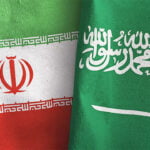Anastasia, a 24-year-old Moscow-based web designer, claims that the past nine months have been turbulent for Russia’s IT industry.
Her studio was compelled to impose stricter project budgets and timeframes following the start of the war in Ukraine.
The sensation of uncertainty about the future, though, is by far the biggest difference.
“No one knows what tomorrow will hold,” she remarked.
The IT industry has found itself on the defence after three decades of unobtrusive growth.
The industry’s access to international money and technology has been severely hampered by sanctions and the huge flight of multinational businesses.
Additionally, since the start of the conflict, tens of thousands of Russian IT professionals have left the nation.
Russian President Vladimir Putin has acknowledged that the country’s IT industry will experience “colossal” challenges in containing the effects of the international sanctions.
At the same time, though, some insiders in the sector claim that the crisis might offer a chance for Russian tech firms to retake the home market and reduce their reliance on Western technology.
Moscow’s long-term ability to compete economically and militarily with the rest of the world will likely depend heavily on the Russian IT industry’s capacity to adapt to new realities in a world where advanced technologies are dominant.
As soon as the conflict in Ukraine broke out in February, the region found itself cut off from the West practically immediately.
Export restrictions imposed by the United States and 37 other nations limited Russia’s access to key technologies like semiconductors, microelectronics, telecommunications equipment, sensors, lasers, and aircraft parts.
Additionally, the government of US President Joe Biden placed more than a dozen Russian IT organisations and firms on a blacklist.
Even policies that weren’t specifically targeted at the IT industry still had an impact on its work.
The ability of IT companies to make or receive funds from outside has been hampered by financial penalties. Logistics sanctions have increased the cost and difficulty of delivering gear to Russia for global tech firms.
Western tech titans left Russia in large numbers as a result of all these issues and the potential reputational risk.
Microsoft, IBM, Oracle, Intel, SAP, Cisco Systems, Adobe, and Nokia are just a few of the businesses that have recently ceased operations in Russia.
In order to safeguard her identity, Anastasia asked that Al Jazeera only use her first name. She claimed that before the war, projects for Western companies brought in “quite significant money” for her design studio.
They abruptly left, leaving the studio scrambling to find new cash streams—a challenging effort considering that Russian corporations are not as eager to pay as the Western behemoths.
Anastasia noted that Russian specialists are progressively becoming accustomed to living under sanctions.
She clarified that many businesses could still use VPNs to access Western software and pay for it with credit cards from foreign banks.
Other times, home alternatives could take the place of Western ones.
“At first it seemed that everyone would leave and we wouldn’t be able to do anything, but we are finding ways to continue working and living as before,” Anastasia added.
The Russian IT industry faces several number of challenges in addition to overcoming Western sanctions.
In the first few weeks of the war, 50,000 to 70,000 IT specialists are thought to have departed the nation, according to the Russian Association of Electronic Commerce.
A lower estimate was provided by the Russoft software developer’s association, which said that during the first half of 2022, roughly 40,000 IT workers relocated abroad.
Concerns over a potential brain drain have been raised as a result of this migrant surge.
According to information from the Ministry of Digital Development, Russia’s IT sector already lacked 500,000 to 1 million specialists to properly meet its needs.
The Kremlin has made new incentives to stay, such as deferred military service, income tax exemptions, favourable mortgage rates, and increased grant money, in an effort to stop the exodus of IT professionals.
Russoft’s CEO, Valentin Makarov, told Al Jazeera that these steps have helped bring some sort of stability and tranquility back.
The majority of the businesses he interacts with didn’t lose many employees.
He stated that while the issue “is bad, it’s not critical.”
According to Makarov, the majority of the exiled IT professionals continued to work remotely for Russian businesses.
Anastasia, however, had a more negative opinion, claiming that many of her coworkers and old classmates departed the nation after the conflict began.
“I often joke that I currently have more friends in Turkey and other popular immigration destinations for Russians than in Moscow,” the woman said.
Uncertainty, according to Anastasia, was the main reason for leaving.
The conflict marked the first occasion when politics had a direct impact on daily life in the Russian IT community, despite the fact that it had always been more opposition-minded than the broader population.
“What I constantly hear from my friends who left is that they no longer feel safe in Russia,” she stated. “The current nervous atmosphere is not conducive to work.”
She claims that despite the government’s recent benefits, there is still too much cause for fear about Russia’s long-term course.
She cautioned that the absence of these experts could have major long-term consequences.
“We aren’t really feeling the consequences of migration yet, but I suspect that the shortage of high-quality specialists will become noticeable later down the line,” she continued. “The departure of excellent specialists means that there will be less great ideas and ambitious projects in the future.”
So, is it possible for the Russian IT industry to overcome these difficulties and continue to innovate?
Some people in the sector answer categorically yes.
Some of Russia’s most well-known IT developers were on a panel at a news conference last week in Moscow, where they said that the widespread exodus of Western tech companies was encouraging Russian businesses to create their own solutions.
Additionally, they argued that Russian businesses had the opportunity to make significant inroads into Latin America, Southeast Asia, and the Middle East in addition to reclaiming the local market.
Makarov, the discussion’s moderator, stated: “The government and IT companies need to make a decision: Are we limiting ourselves to just replacing or supporting the software of departed Western companies, or is our goal to become a leader in an emerging new technological order.”
“Russia has proven that it can be a leader in the sphere of information security and export technological sovereignty to other countries,” he said. “… We can use cybersecurity platforms to build and promote other Russian technological applications on the global market.”












